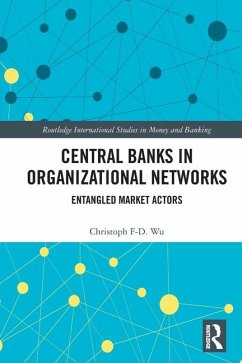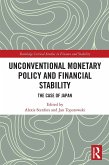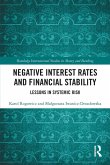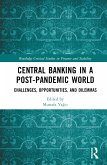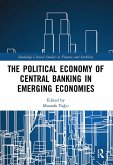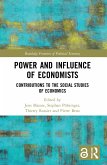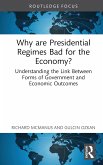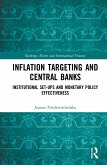This inter-disciplinary and wide-ranging study unravels the social processes of decision-making at the interface of central banks and financial market participants, and thereby raises important questions about responsible central bank governance and its obligations to stakeholders in society. The book challenges commonly held assumptions on how central banking works and critically assesses unconventional monetary policy and its underlying theoretical tenets.
Drawing from rich, multi-sited fieldwork and data collection, this research monograph offers an in-depth look into the financial market practices around the quantitative easing programmes of the European Central Bank and focuses on the uneasy role of modern central banks as active market participants. The author introduces concepts from social network theory and develops a novel method to study organisational networks in the context of financial markets. An analysis of the European Central Bank's social, organisational and financial networks is sketched over the course of multiple chapters. The concluding chapters dive into documentary analysis and the extensive material from qualitative interviews with senior investment professionals about the strategies and adaptive processes around the lived experience of quantitative easing.
The winner of the British Sociological Association's prestigious Philip Abrams Memorial Prize, this book is a vital resource for social scientists researching organisations in financial markets, providing theory, concepts, empirical data and practical implications. It will be of interest to academics and graduate students in economics, sociology and management/organisation studies, as well as practitioners at central banks and in asset management.
Drawing from rich, multi-sited fieldwork and data collection, this research monograph offers an in-depth look into the financial market practices around the quantitative easing programmes of the European Central Bank and focuses on the uneasy role of modern central banks as active market participants. The author introduces concepts from social network theory and develops a novel method to study organisational networks in the context of financial markets. An analysis of the European Central Bank's social, organisational and financial networks is sketched over the course of multiple chapters. The concluding chapters dive into documentary analysis and the extensive material from qualitative interviews with senior investment professionals about the strategies and adaptive processes around the lived experience of quantitative easing.
The winner of the British Sociological Association's prestigious Philip Abrams Memorial Prize, this book is a vital resource for social scientists researching organisations in financial markets, providing theory, concepts, empirical data and practical implications. It will be of interest to academics and graduate students in economics, sociology and management/organisation studies, as well as practitioners at central banks and in asset management.
"Wu uses his unprecedented access to the elite networks that move markets as much as central bank policies to let us into how quantitative easing came to be." - Hendrik Vollmer, Warwick Business School
"Christoph Wu's book, Central Banks in Organizational Networks: Entangled Market Actors, is the worthy winner of the 2023 Philip Abrams Memorial prize for the best first book in sociology. It offers an institutional analysis, or analysis of an institution, through the use of mixed methods. It is innovative in its use of social network analysis to examine central bank networks to look at these institutions through a sociological lens. The book is well grounded in the literature on economic sociology, the social studies of finance, and network analysis (including actor network theory). It is a very sophisticated and complex project that triangulates its findings to build its analysis. It is an excellent piece of research, well thought out and executed, and makes a significant intervention across the fields of social studies of finance and organisational sociology.
The book makes a compelling case that social structures shape decision making, and that the sociology of institutions continues to be a necessary and valuable part of the discipline. Wu argues that "central banks are not immune to the social but in fact thrive in it". He takes a detailed look at the European Central Bank, revealing how this institution is entangled in social, organisational and financial networks, and at how public and non-public communication practices and strategic action influence risk sharing and financial decision making. He shows how imitation, homophily (tendency to associate with similar others) and home-bias shape what banks do in ways that challenge some existing economic thinking. This is an especially timely book in the middle of a further period of banking turmoil and offers encouragement to sociologists to study financial networks and banking organisations to contribute further to this area." - Professor Gurminder Bhambra, President, British Sociological Association
"Christoph Wu's book, Central Banks in Organizational Networks: Entangled Market Actors, is the worthy winner of the 2023 Philip Abrams Memorial prize for the best first book in sociology. It offers an institutional analysis, or analysis of an institution, through the use of mixed methods. It is innovative in its use of social network analysis to examine central bank networks to look at these institutions through a sociological lens. The book is well grounded in the literature on economic sociology, the social studies of finance, and network analysis (including actor network theory). It is a very sophisticated and complex project that triangulates its findings to build its analysis. It is an excellent piece of research, well thought out and executed, and makes a significant intervention across the fields of social studies of finance and organisational sociology.
The book makes a compelling case that social structures shape decision making, and that the sociology of institutions continues to be a necessary and valuable part of the discipline. Wu argues that "central banks are not immune to the social but in fact thrive in it". He takes a detailed look at the European Central Bank, revealing how this institution is entangled in social, organisational and financial networks, and at how public and non-public communication practices and strategic action influence risk sharing and financial decision making. He shows how imitation, homophily (tendency to associate with similar others) and home-bias shape what banks do in ways that challenge some existing economic thinking. This is an especially timely book in the middle of a further period of banking turmoil and offers encouragement to sociologists to study financial networks and banking organisations to contribute further to this area." - Professor Gurminder Bhambra, President, British Sociological Association

